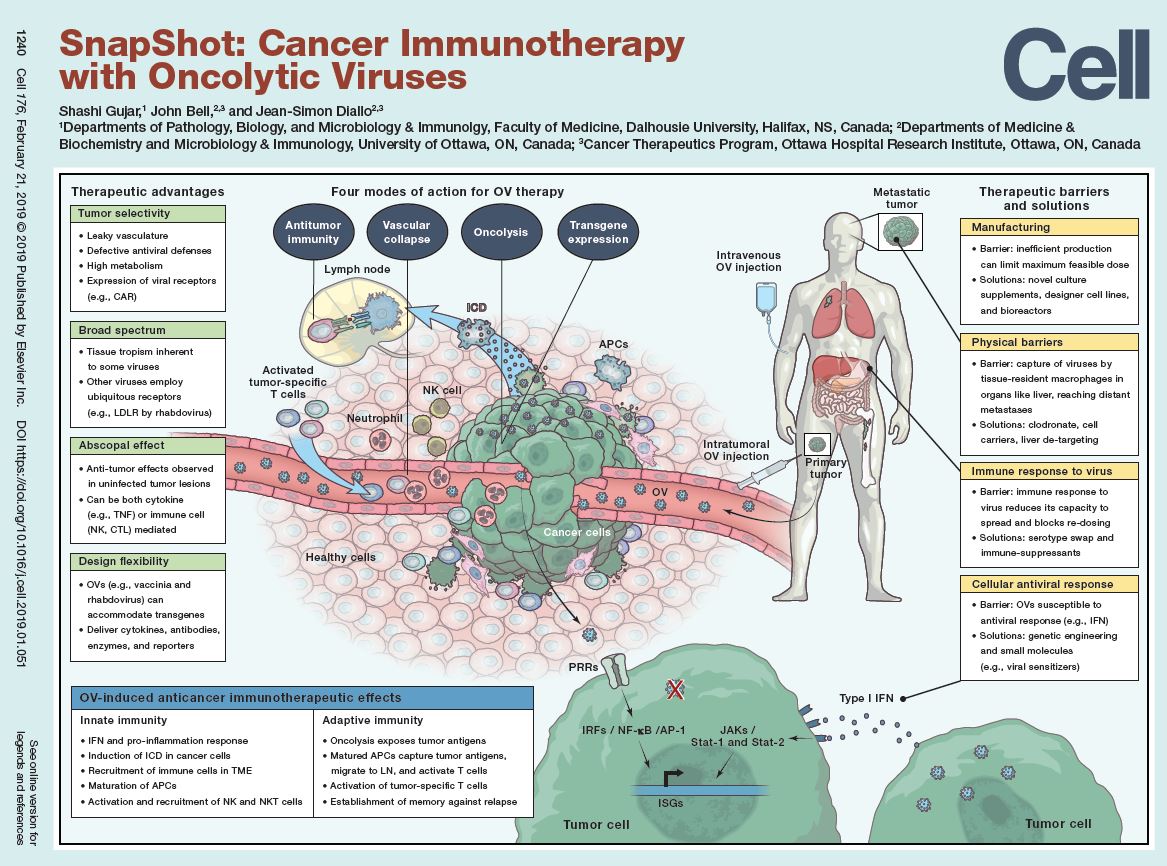Members of a long-standing TFRI team focused on developing cancer-killing viruses have published a snapshot article summarizing this promising area of research in Cell, one of the world’s most important scientific journals.
The article describes how viruses are currently used for cancer immunotherapy, outlining the four major mechanisms through which this occurs. These include their capacity to selectively infect and kill cancer cells, their ability to help deliver genes with anticancer effects directly to cancer cells, their potential to “starve” tumour cells of blood through vascular collapse and their propensity to stimulate innate and adaptive anti-cancer immune responses.
“Publishing an article like this in a prestigious journal like Cell allows us to communicate effectively and to a broad audience what the benefits of and challenges to using viruses to treat cancer,” said Dr. Jean-Simon Diallo (Ottawa Hospital Research Institute), a member of TFRI’s Canadian Oncolytic Virus Consortium and one of the paper’s authors. “It also helps us educate those non-experts who are just being initiated to this exciting yet complex area of research.”
Dr. Diallo and the rest of the team are excited by this growing field of cancer research and look forward to sharing its potential with researchers around the world.
“If we can learn to harness their full potential, oncolytic viruses hold tremendous promise as therapeutics and will change the way we treat cancer,” he said.

Study
SnapShot: Cancer Immunotherapy with Oncolytic Viruses
Authors
Shashi Gujar, John Bell and Jean-Simon Diallo
Funding
The authors of this review are funded by the Terry Fox New Frontiers Program Project Grant to the Canadian Oncolytic Virus Consortium (COVCo)